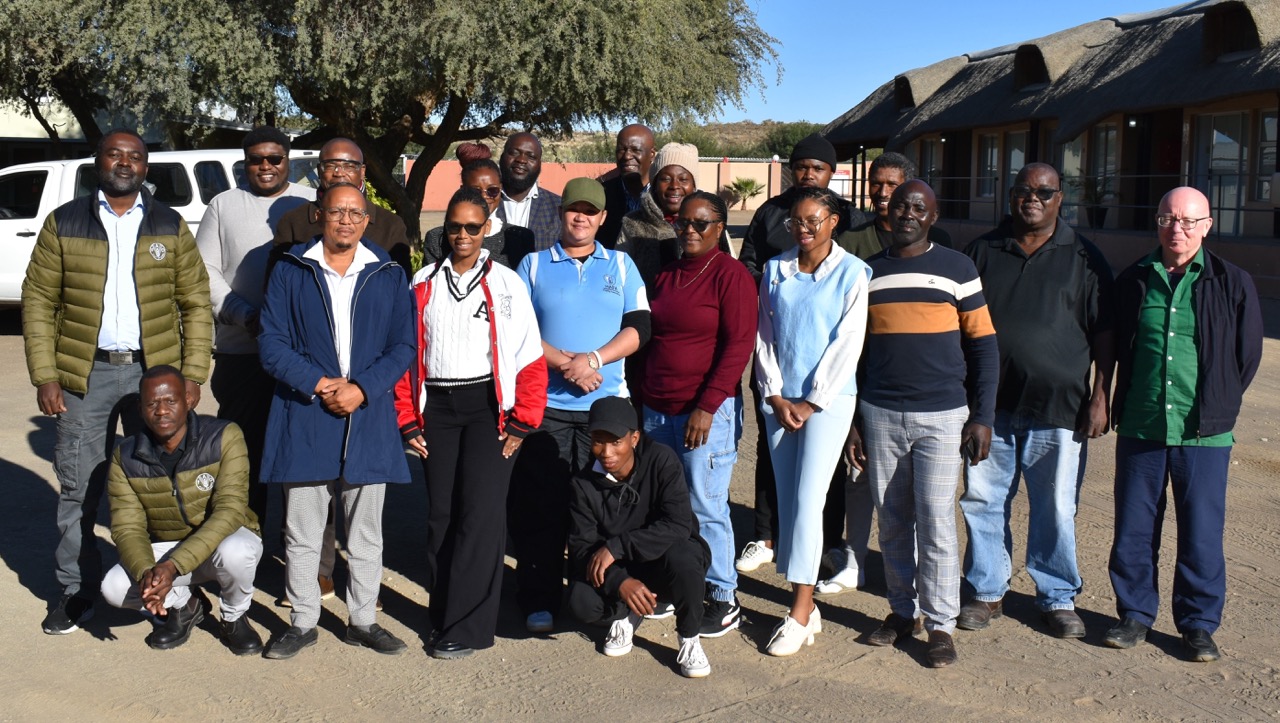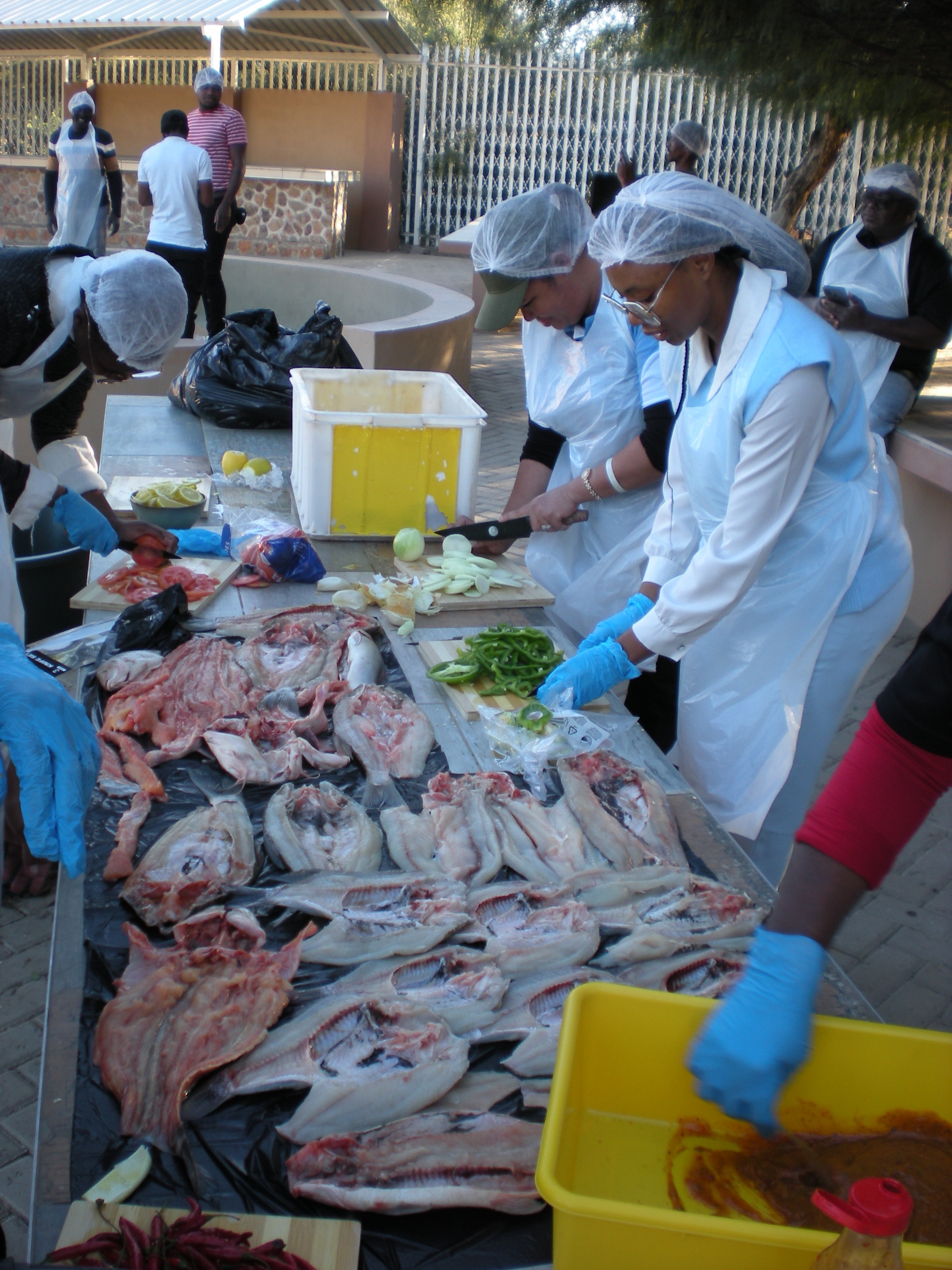FAO empowers small-scale fisheries trainers in Namibia

©FAO
From 30 June to 2 July, fifteen trainers from marine and inland small-scale fishing communities and associations gathered in Keetmanshoop, Namibia for an intensive three-day training of trainers (ToT) workshop.
The workshop, organized by the Food and Agriculture Organization of the United Nations (FAO in collaboration with the Ministry of Fisheries and Marine Resources (MFMR), was a key activity in the capacity building process of the Implementing the Small-Scale Fisheries Guidelines for gender-equitable and climate-resilient food systems and livelihoods project. This initiative supports the implementation of the Voluntary Guidelines for Securing Sustainable Small-Scale Fisheries in the Context of Food Security and Poverty Eradication (SSF Guidelines).
The workshop, facilitated by a team of FAO experts, guided small-scale fisheries (SSF) trainers and MFMR staff, through a series of theory and practical sessions. Topics covered included improved fish handling and processing practices, value addition, new product development, and financial management. Trainers also practiced delivering their own training sessions in a controlled workshop setting, through role playing scenarios, to prepare for training their peers—fellow fishers, processors, and traders—back home.
 | A key outcome of the ToT, and FAO’s project more broadly, is to strengthen small-scale fisheries organizations by fostering collaboration and improving representation, particularly for women; at the same time supporting the implementation of Namibia’s National Plan of Action for Small-Scale Fisheries (2022-2026). During the opening speech, Ralph Sachika, Chief regional Officer of the Karas Regional Council remarked that this is a great opportunity for small-scale fisheries and confirmed the full support of the local government for the initiative. One of the participants, Shiwaovanhu Paulus, a fisherwoman and single mother of four children, from the Swakopmund Artisanal Fishermen and Women Association, stressed that, “the main challenges we face as small-scale fishers are a lack of transport and cooling facilities.” Her feeling from the workshop was that she had learnt a great deal, particularly “how to preserve my fish, and that handling fish in poor hygienic conditions will cause me to lose my product.” She went on to say that she intends to, “train her association members to add value to their fish and avoid loss, and in preservation methods like smoking and teach my fellow women fishers how to develop their businesses.” As one of the final activities, trainers developed action plans which summarise what they intend to focus their future trainings on, how and who they intend to train when they return back to their home communities. |
Ansen Ward, senior post-harvest fisheries specialist in FAO headquarters, emphasized the importance of this approach: “Creating and strengthening community trainers is helps guarantee that the knowledge and techniques are passed on and adapted to local contexts. The workshop was successful, it laid a strong foundation for future SSF capacity building by this important group of trainers”.
Learn more:
• SSF Guidelines website
• Implementing the Small-Scale Fisheries Guidelines for gender-equitable and climate-resilient food systems and livelihoods project
• Namibia webpage
